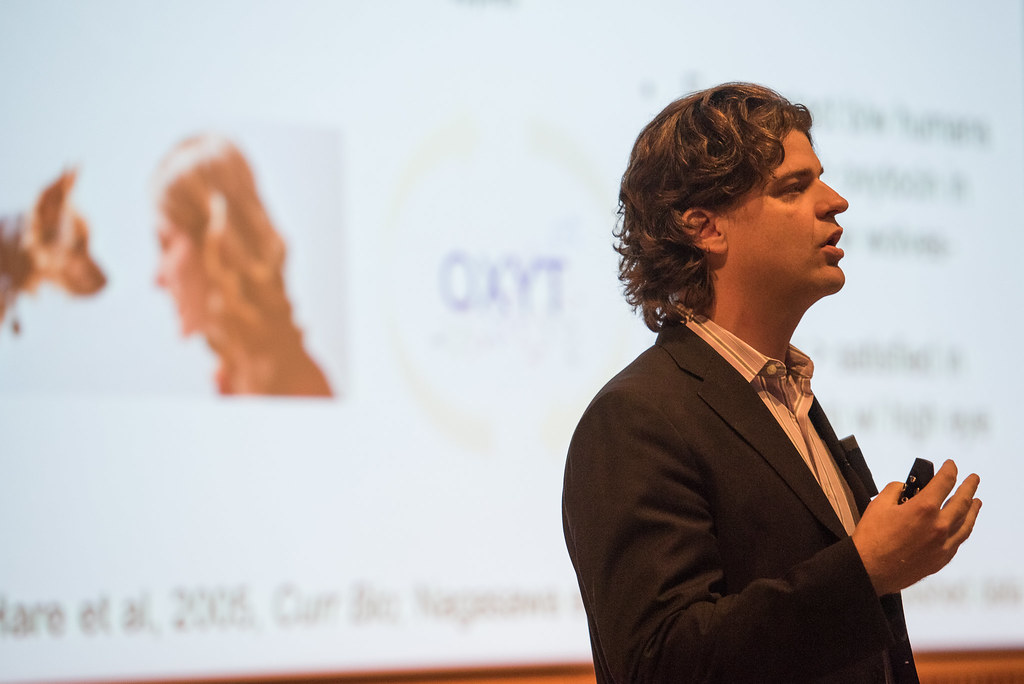Hare explains survival of the friendliest as component of natural selection

By Allison Scott | Bond LSC
Dogs really are a man’s best friend if you ask Brian Hare.
Our four-legged friends are a direct result of chance coupled with domestication. And over the course of hundreds of years, that domestication has led to deep bonds between humans and dogs.
“You love your dog, physiologically, the same way as your offspring or partner,” Hare said.
Throughout his career, Hare has analyzed various animals from dogs and foxes to chimpanzees and bonobos to determine how much friendliness actually is a factor in their survival.
Recently, Hare has focused on primates. In his studies, he’s observed distinct differences between chimpanzees and bonobos, both of which are closely related species.
“Chimpanzees are like humans,” Hare said. “Bonobos have a different social system.”
Chimpanzees tend to be the more aggressive, male-dominated of the two. On the other hand, bonobos are the exact opposite and thrive on a more equal approach. Bonobos love to share with anyone and everyone, making them friendlier.
Hare has been able to support this difference through a series of experiments. They show that one bonobo will likely help a stranger in a cage get food that is just out of reach. These experiments showed that bonobos are willing to help others in most situations unless there’s a high cost or risk to self.
The evolutionary elements of friendliness and the traits behind kindness Hare identified as a possible reason homo sapiens won out over other human ancestors like Neanderthals. This is due, in part, to what Hare calls the ‘like me’ trait.
“If we as humans can categorize based on cultural or social characteristics that someone is “like us,” we’re more likely to help them out,” Hare said. “This leads to bonds.”
The opposite is also true, though. This means if we identify someon as “not like us,” we’re less likely to help them. That stark difference between humans and both chimpanzees and bonobos makes for a more complicated communication process, and contributes to humans being both the friendliest and cruelest species alive.
At the end of the day, though, Hare strongly believes the science supports friendliness as a component of natural selection.
“You can win big by being friendly in the evolutionary game,” Hare said.
The 13th annual Life Sciences and Society Symposium, The Science of Love, started Friday, Oct. 6 and Saturday, Oct. 7. It features six experts that research various aspects of love, relationships and connection. The event will conclude on Friday, Oct. 13 with its last speaker, Jim Obergefell, who was the plaintiff in the 2015 Supreme Court case on marriage equality.

